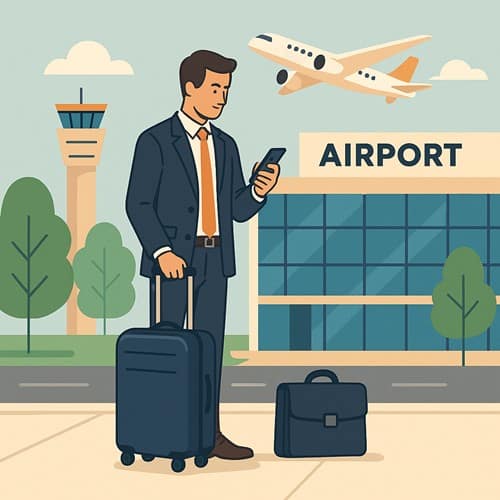For entrepreneurs and business owners, travel expenses can quickly add up and impact your bottom line. In today’s competitive business landscape, finding ways to reduce costs while maintaining productive business travel is essential. This guide offers practical strategies for optimizing your travel budget in 2025 without sacrificing quality or efficiency.

Take Advantage of Updated IRS Mileage Rates
The IRS has updated its mileage reimbursement rates for 2025, which can provide significant tax benefits for business travelers. According to the 2025 IRS mileage rate, entrepreneurs can now deduct:
| Category | IRS Mileage Rate 2025 |
|---|---|
| Business Miles | 70 cents per mile |
| Medical Miles | 21 cents per mile |
| Charity Miles | 14 cents per mile |
Tracking your business mileage meticulously can lead to substantial tax savings at the end of the fiscal year. Consider using mileage tracking tools to maximize these deductions.
Choose Strategic Accommodations
Extended Stay Properties
For trips lasting more than a few days, extended-stay hotels or apartment rentals often provide better value than traditional hotels. These accommodations typically offer:
- Fully equipped kitchens to reduce dining expenses
- Laundry facilities to minimize packing needs
- Weekly rates that are significantly lower than daily rates
- More space to work comfortably
Co-living Spaces
The rise of entrepreneurial co-living spaces in major business hubs offers a dual benefit: affordable accommodations plus networking opportunities with like-minded professionals.
Leverage Technology for Better Deals
Fare Prediction Tools
Modern AI-powered fare prediction tools can analyze historical pricing data to suggest the optimal time to book flights, potentially saving 15-20% on airfare. Many now integrate directly with calendar apps to monitor your planned business trips and alert you to booking opportunities.
Subscription-Based Travel Services
Several airlines and hotel chains have introduced subscription models in 2025 that can provide significant savings for frequent travelers:
- Annual fees that offer discounted rates year-round
- Complimentary upgrades when available
- Waived baggage fees
- Priority boarding and check-in
Strategic Scheduling
Off-Peak Business Travel
Conducting business travel during traditionally off-peak times can reduce costs substantially:
- Mid-week flights typically cost less than Monday morning or Friday evening departures
- Traveling during shoulder seasons (just before or after peak business travel periods)
- Booking meetings in destination cities during their low tourism periods
Combine Trips When Possible
Consolidating multiple client meetings or business objectives into single trips can dramatically reduce your annual travel expenditure. Consider:
- Scheduling back-to-back meetings in nearby locations
- Adding additional business development activities to planned trips
- Extending stays over weekends when flight prices drop
Alternative Transportation Options
Electric Vehicle Services
The expanded network of electric vehicle rentals and rideshares in 2025 often provides cost advantages over traditional options, with many offering business account discounts and dedicated business class services.
Multi-Modal Transportation Apps
New integrated transportation platforms allow entrepreneurs to combine various modes of transportation (trains, rideshares, e-bikes, etc.) in the most cost-effective way, with unified billing and expense reporting.
Digital Tools for Expense Management
Automated Expense Tracking
Modern expense management applications can:
- Automatically categorize business expenses
- Track mileage through GPS
- Generate compliant expense reports
- Identify tax deduction opportunities
- Flag unusual spending patterns
Virtual Cards for Better Control
Virtual payment cards allow entrepreneurs to:
- Set spending limits for specific trips or team members
- Create single-use cards for individual transactions
- Automatically categorize expenses
- Receive real-time alerts for unusual spending
Networking for Travel Savings
Reciprocal Office Space Arrangements
Many entrepreneurial networks now facilitate office-sharing arrangements across different cities, allowing members to access workspace while traveling without additional costs.
Community-Based Accommodations
Professional networks increasingly offer home-sharing options specifically for business travelers, providing comfortable accommodations at rates below market prices while fostering valuable connections.
Conclusion
Effective travel cost management doesn’t mean compromising on business effectiveness. By implementing these strategies, entrepreneurs can significantly reduce their travel expenses in 2025 while maintaining productive business trips. The key is to approach travel as a strategic business function rather than an unavoidable expense, applying the same innovation and efficiency that drives other aspects of your business operations.



